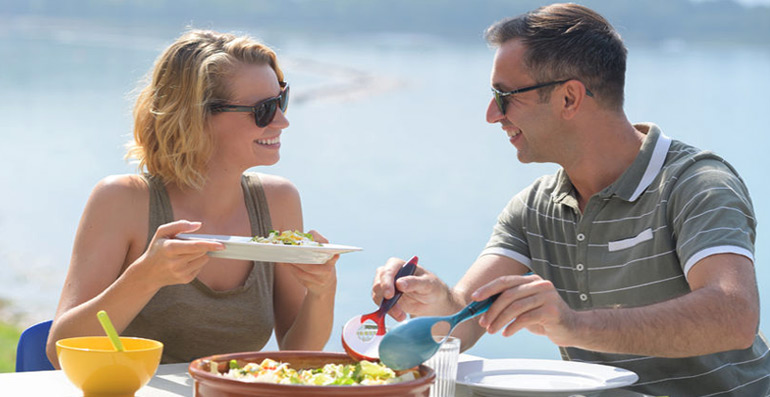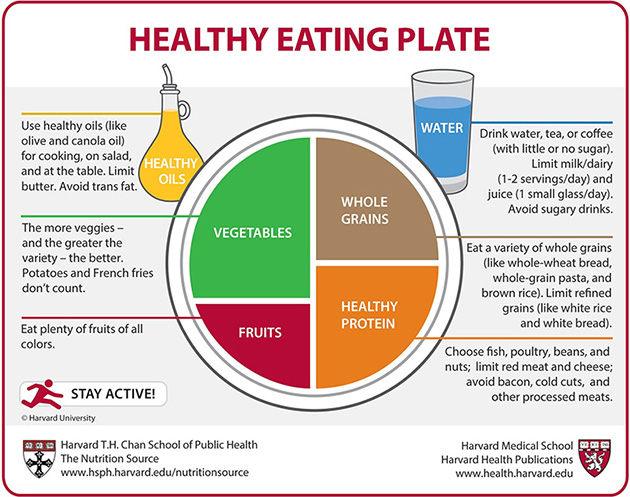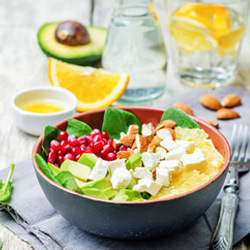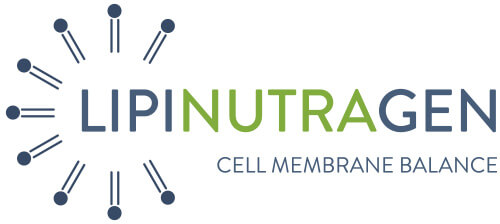
Eating healthy on vacation


On the wave of wellness research
It’s time to go on vacation! I n this particular time of year, food is one of the most important spending item for the Italians, as Coldiretti reported in 2017.
Historically during holidays half of the Italians are fattening, although in recent years there is a healthy trend that leads to the consumption of healthy foods and local tradition. In particular, the biggest demands concern whole foods, organic farming products, gluten-free foods, so-called superfoods, and, on the beach, boom salads and fruit salads.
In this pursuit of wellness research, it is important to make some reflection on how to orientate this time of year to eat satisfactorily, healthy, and not add excess fat to your body weight (1).
Since excess weight is not only a negative aesthetic factor, but it also increases the sense of malaise and the risk of chronic degenerative disease, realize that “food from medicine” can become a cause of illness. This does not mean going on a vacation diet or not eating the typical foods of a trip, but rather experiencing an experience without the adverse effects of excesses.
Practical tips for balanced nutrition
An easy and intuitive way to have balanced nutrition is for example the Harvard Medical School’s “Healthy Eating Plate”, which resumes the dictates of the Mediterranean diet:
– 50% of the vegetable meal and fresh fruit;
– 20-25% of cereals and derivatives, preferably whole;
– 25-30% of animal and vegetable protein, limiting processed meat (sausages, etc.) and fat cuts;
– As a seasoning, use vegetable fats with preference for extra virgin olive oil.

Hydrate abundantly with water during the day, avoiding sweetened drinks and moderating the alcoholic beverages.
Start eating meals with raw vegetables (e.g. a mixed salad) or soup, to reduce the glycemic impact of foods and to introduce healthy low-calorie fiber.
No skip meals with the intention of indulging in a meal at the next meal.
MINDFUL EATING: what is it?
 An emerging practice, mindful eating (2), concerns the conscious nutrition that requires consciousness of hunger and satiety, restoring a connection with one’s own body.
An emerging practice, mindful eating (2), concerns the conscious nutrition that requires consciousness of hunger and satiety, restoring a connection with one’s own body.
Some tips to start mindful eating:
1. Establish a basic time (20-30 minutes) to consume a normal meal – use a timer;
2. Try to hold the fork with a non-dominant hand: feft if you are right or right if you are left;
3. Eat in silence, with no TV turned on, smartphones or other “devices”. Think of the origin of food and its production cycle to get to our tables;
4. Have small bites and chew well. Feel the flavours and smells of foods;
5. Before opening the fridge or pantry ask yourself if you are really hungry. Do away with doing more than reading from a short walk.
…And if you cannot afford a vacation, meditate:
Today’s life, with its hectic pace, undergoes continuous stress, which, with its molecular effects, has a negative impact on human health. The human being has maintained the stress response mechanism during evolution, for the functional resolution of transitional hazard situations and through the activation of the neuro-endocrine system. While in ancient times the production of hormones such as adrenaline or cortisol used to keep the useful functions useful in the event of imminent danger, today we live under tension conditions. The persistence of a state of over-activation of the stress system worsens the psycho-physical balance and threatens the state of health by generating e.g. anxiety, depression or altering blood pressure threatening cardiovascular health or the immune system.
Holidays can serve to counteract these effects, starting from reducing stress levels and triggering positive fall-back effects.
Recent studies (3), including one conducted by Harvard Medical School, have shown that beneficial effects similar to those of holidays can also be obtained from practices such as meditation, yoga, tai chi or qi gong. In addition, unlike going out, the beneficial effects are not transient, but they persist over time. The study referred to not only the sensations reported by participants in this experiment, but also analyzed the presence in the blood of molecular markers of inflammation and immune functions.
The world of research is increasingly finding evidence that the fullness of human health lies in healthy eating, physical activity, and mental activity acting at a profound level.
Bibliography
(1) Schoeller D.A. The effect of holiday weight gain on body weight. Physiol Behav. 2014, Volume 134, Pages 66-69.
(2) Kristeller J.L., et al. Mindfulness-based eating awareness training for treating binge eating disorder: the conceptual foundation. Eat Disord. 2011, Jan-Feb;19(1):49-61. doi: 10.1080/10640266.2011.533605
(3) Epel E.S., et al. Meditation and vacation effects have an impact on disease-associated molecular phenotypes. Transl Psychiatry. 2016, doi:10.1038/tp.2016.164.
Article by:
Nutritionist Dr. Francesco Bonucci
The diet tips, written in the article, are not intended to be a substitute for a personal nutrition plan and are to be adapted to specific cases.
Photo: 123RF Archivio Fotografico | ©auremar, 80266728, 2017-06-21 | ©Nataliya Arzamasova, 51573386, 2017-06-21
- On 7 July 2017



